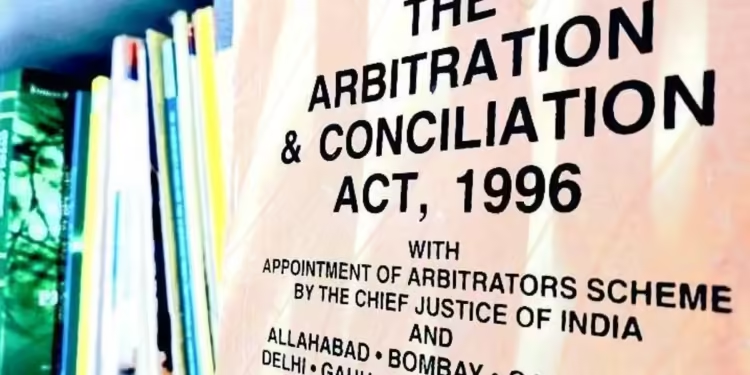On Monday, the Supreme Court expressed concerns that arbitral proceedings in India have become synonymous with bulky pleadings, voluminous evidence, and time-consuming submissions [Bombay Slum Redevelopment Corporation Private Limited v. Samir Narain Bhojwani].
A Bench of Justices Abhay S. Oka and Pankaj Mithal noted that in appropriate proceedings, it might be necessary to examine whether arbitration in India has been cost-effective.
The Court stated:
“Case after case, we find that arbitral proceedings have become synonymous with very bulky pleadings and evidence and very long, time-consuming submissions, leading to very lengthy awards. Moreover, there is a tendency to rely upon a large number of precedents, relevant or irrelevant. The result of all this is that we have very long hearings before the Courts in Sections 34 and 37 [Arbitration and Conciliation Act] proceedings.”
The Supreme Court lamented that appeals against arbitral awards are often contested as if they were appeals under Section 96 of the Code of Civil Procedure, with numerous grounds that waste judicial time.
“The time of our Courts is precious, considering the huge pendency. This is happening in a large number of cases. All this makes the arbitral procedure inefficient and unfair. It is high time that the members of the Bar show restraint by incorporating only legally permissible grounds … Everyone associated with the arbitral proceedings must remember that brevity will make the arbitral proceedings and the proceedings under Sections 34 and 37 more effective,” the Bench emphasized.
The Court urged all stakeholders to reflect on these issues to avoid delays and ensure arbitration remains cost-effective.
“Arbitration must become a tool for expeditious, effective, and cost-effective dispute resolution,” the Court emphasized.
The observations came while disposing of appeals against a July 2023 order of a Division Bench of the Bombay High Court. The Division Bench had remanded the case concerning appeals against an arbitral tribunal decision to a single judge, who had initially set aside the award on grounds of illegality and perversity.
The Supreme Court noted that the award itself ran into 139 pages, while the petition under Section 34 of the Arbitration Act was 93 pages long, incorporating 151 grounds. The judgment of the single judge was 101 pages, relying on 35 precedents, and the appeal against it ran into 46 pages with 164 grounds cited.
“As per the practice in the High Court of Judicature at Bombay, a memorandum of appeal under Section 37 of the Arbitration Act does not contain the facts but only the grounds of challenge … Considering the narrow scope of interference under Sections 34 and 37 of the Arbitration Act, we cannot comprehend how there could be 151 grounds in a petition under Section 34 and 164 grounds in an appeal under Section 37. It is not surprising that this appeal has a synopsis running into 45 pages, and it contains as many as 54 grounds of challenge,” the Supreme Court said.
The appeals were partly allowed, and the matter was remanded to the Division Bench of the High Court for a decision on merits in line with the Arbitration Act.
Senior Advocates Dr. Abhishek Manu Singhvi, Ramesh Singh, Maninder Singh, and Meenakshi Arora appeared for the appellant, Bombay Slum Redevelopment Corporation Private Limited. Senior Advocates Mukul Rohatgi and CU Singh appeared for the respondent.

















